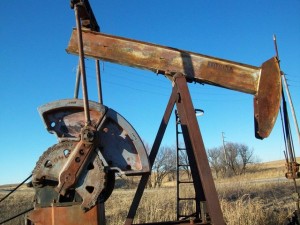Moratoriums, schmoritoriums… the oil has to come from somewhere, doesn’t it?
The T-Ridge project is somewhat complicated – a few environmentalists in the Santa Barbara area actually support it – but when asked if an oil spill the likes of what is happening in the Gulf could take place in California, Schwarzenegger said “That will not happen”. Asked why he is withdrawing his support of the project, he said simply, “why would we want to take that risk?”
Why, indeed. The storm continues to build, but do we do, or plan to do, anything differently? Is this massive oil dump just one of those things that happens in the background and meanwhile, we just keep on doing the same things in the same ways? It’s a full-blown catastrophe in just its sixth day and already the States’ Rights Brigade is calling for the Federal government to do something(!). While not exactly hopeful for their redemption, I’m always open to it. But they’ll have to take a moment and reload something other than their fancy store-bought weaponry.
Our energy conundrum is made up of exactly the sort of complexity that the right wing conveniently dismisses. Maybe this is one thing that happens when you ignore implications and complex systems. But still, will they get it? How does it get played on Fox?
This will be more difficult than you might think, especially considering the awful power of an oily coastline to focus the mind. There is a mountain of cognitive dissonance intellectual and ethical incoherence that’s actually a volcano. And it’s rumbling.
Krugman’s column today is a reminder of what it took to bring about the first wave of environmentalism. And this, sadly, might be reminiscent. It’s pathetic that it takes this kind of disaster to allow people to visualize the effects of our crazy, laissez-faire rhetoric. It abets nothing so much as poisoned wells, tainted toys, contaminated foods, financial crises and this is no different.
And if you haven’t read Juan Cole on BP… well, you might want to pour yourself a scotch first.



